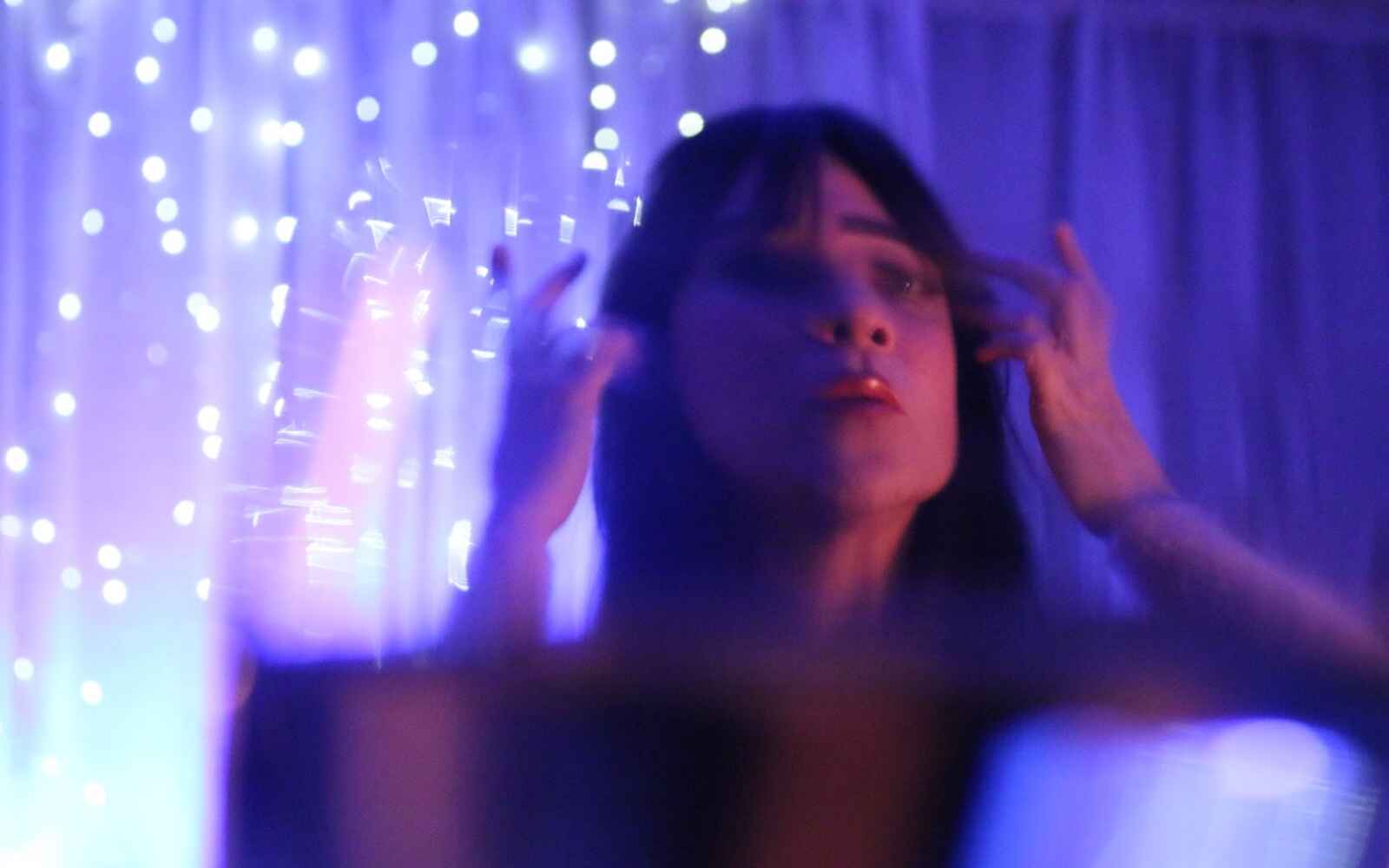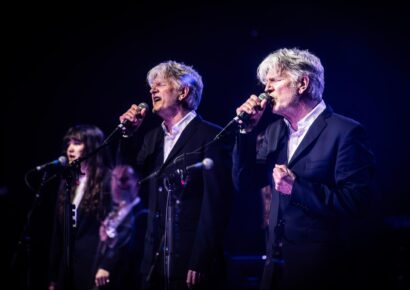If Sarah Mary Chadwick wasn’t an artist, she’d own a bar.
“It’s hard and you don’t get paid enough, but I really do like hospitality,” she tells me. “But it’d probably be the worst idea ever because I’d drink way too much.”
Instead, she makes music and paints pictures and all the things that come on the side: when I reach her, she’s in the midst of a flurry of emails, catching up after a recording trip in Hobart. This comes as a surprise, as her newest album hasn’t even hit the shelves yet.
Keep up with the latest music news, festivals, interviews and reviews here.
“I think my comfort zone is always being a bit ahead of myself so I never have to get stressed out about doing work, if that makes sense,” she says. “You’re making it when you feel like doing it, opposed to when you have to.”
Eight albums and over twenty years into her career, Sarah has songwriting down to a fine-tuned art. The precision with which she melds dynamic chord progressions with poetic lyricism – heart-wrenching in its vulnerability yet cut with moments of humour – shines particularly bright in her latest work, Messages To God.
Sarah likes to make one album a year. She’s done so since 2015, with just a few gaps in between. She says it helps give structure to her year to have something to build it around.
In doing so, her work becomes something of a time capsule: “Generally, the way that I try and write is to capture a feeling, so if I’ve captured it properly then I’ll be able to revisit it and come back, if that makes sense… If it’s there, I can always come back to it.”
Months back, she played a rare, one-off show with Batrider, the band she was in in her 20s, as part of Melbourne’s Rising Festival.
I was like, ‘Oh God, I’m going to have to sing lyrics that I wrote when I was 25′ but it was kind of fine,” she laughs.
“For the most part I remember what I was trying to do, and that was still there, so that’s okay. Because I’m 41 now and if I was singing songs that I wrote when I was 25 and if it wasn’t a little bit cringey, I’d be really worried about myself now. You want to feel like you’re changing, evolving to some extent. That feeling of it being different also makes me feel good about being a person now.”
These days, she says, her songwriting process is more refined. Rather than following her intuition alone, she’s more conscious of how to evoke her desired feeling, waiting on certain lines until the right words come to her.
“I know pretty quickly if the melody’s strong or if the chords are appropriating the mood or the feel that I want. And this is maybe what I didn’t used to do when I was younger, but these days I almost run through it with a comb, like if anything sticks out.
“You know when you’re singing a song and you find yourself mumbling certain lyrics because they’re embarrassing or whatever? If I don’t want to sing it, then there’s probably something wrong with it, so I change that stuff out.”
Her writing dredges up from a well of personal traumas, from losing a friend to grieving her father. “If no one’s crying, it’s not a thing” she sings on Angry and Violent – which is sometimes how her work feels.
There’s something about the warbling, stretched quality of Sarah’s voice that lends itself to the affective quality of her songs. But despite the labour of love that goes into crafting her words, she feels many people don’t even care much about them.
“Do you know what I reckon I noticed really young? People don’t pay nearly as much attention to lyrics as you think they do,” she laughs. “I think it’s also why there’s so much really average lyrics, because people don’t even care. It’s such a wasted opportunity too, because it’s really fun writing lyrics.”
Even if they’re not catching all the lyrics, listeners seem to find profound connections with Sarah’s music and with Sarah herself.
“When I was younger I think I would let people be too open with me about personal stuff in a way that was just a little bit too much for me,” she tells me.
“That was one of the first things I brought to therapy was just feeling drained by that. And then my therapist was like, ‘You have to be aware of the transaction. You’ve signed up to play a performance and play well, be prepared or whatever and the transaction is that people watch you and you don’t owe anyone anything more than that.”
These days, she’s more careful with what she takes on from strangers. Those who have been following Sarah’s music might notice a subtle shift with Messages To God, a kind of grounded maturity.
There’s a sense of light peeking through the clouds, especially in comparison to her previous record, the sparse and abraded Me & Ennui are Friends, Baby. She attributes this in part to the help of producer Tony Espie, one of the first outside figures she’s brought on board.
“Me and Ennui, obviously it’s quite a sad record, but it’s also a kind of cold record. And I think that this is kind of a warmer record. I mean, I know that because I know what I was like when I was making both of them, and I think Tony added the right amount of sparkle on top, just a bit of levity to it which I think is nice.”
Even the album cover, a watercolour painting by Sarah herself, reflects this: “I accidentally always do some kind of self-portrait, so I wanted to have more people around, for sure.”
As a listener, it’s nice to see Sarah among friends for a change. “Surely a human helped another human through it / don’t you want to help them through it?” lifts the album’s opening track, decorated by licks of flute and twangy guitar slides.
“You know when you have a really good conversation with a friend and then afterwards you just feel like enough’s been said, you feel really satisfied? I think that’s kind of like my songwriting practice. If I feel like a song’s been done properly, you just know there’s nothing really more to say.”
Keep up with Sarah Mary Chadwick here.

